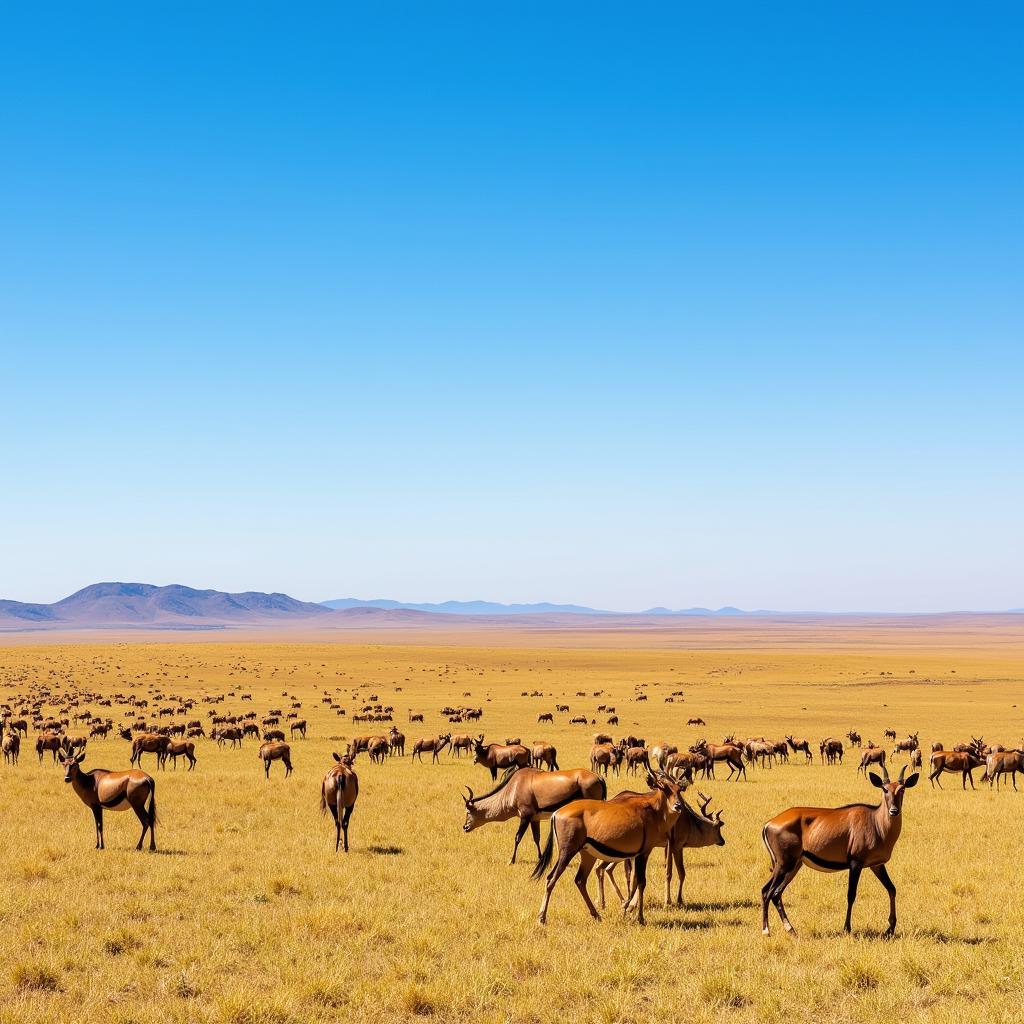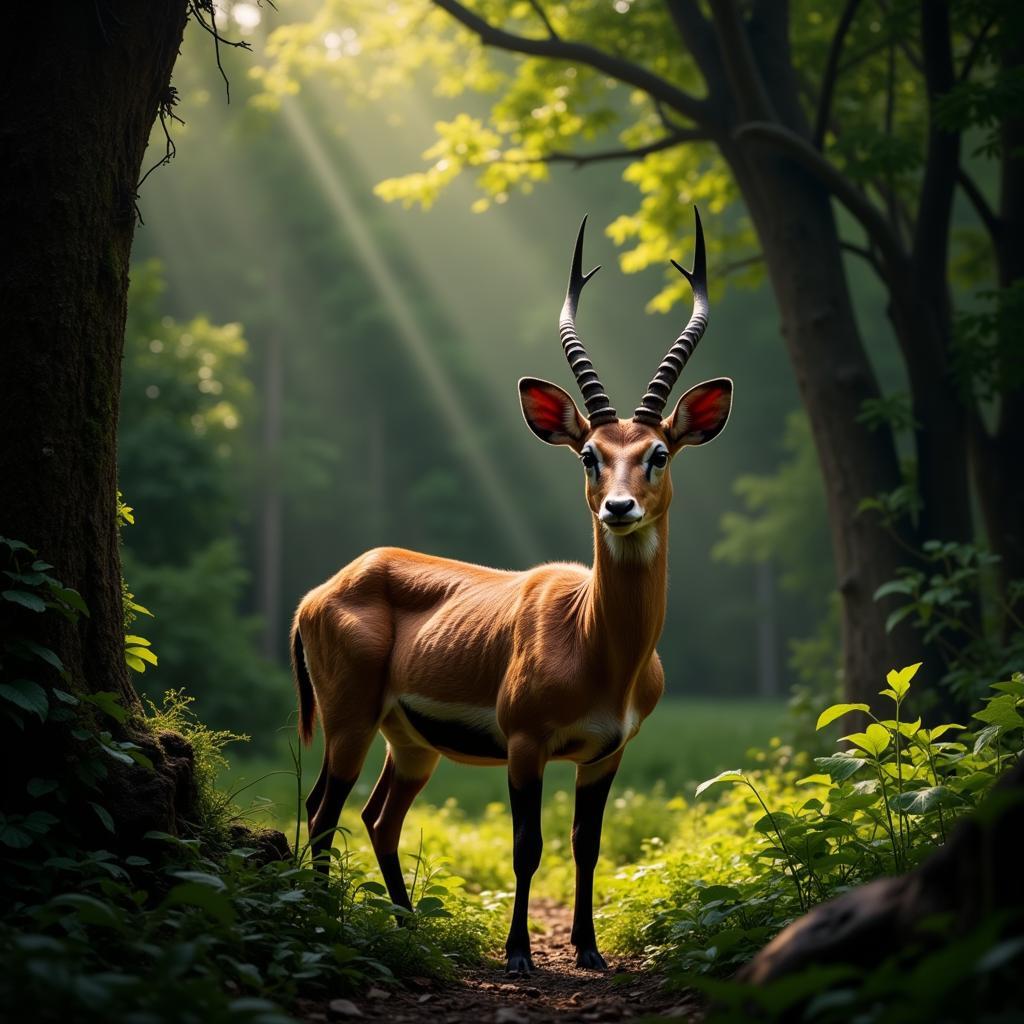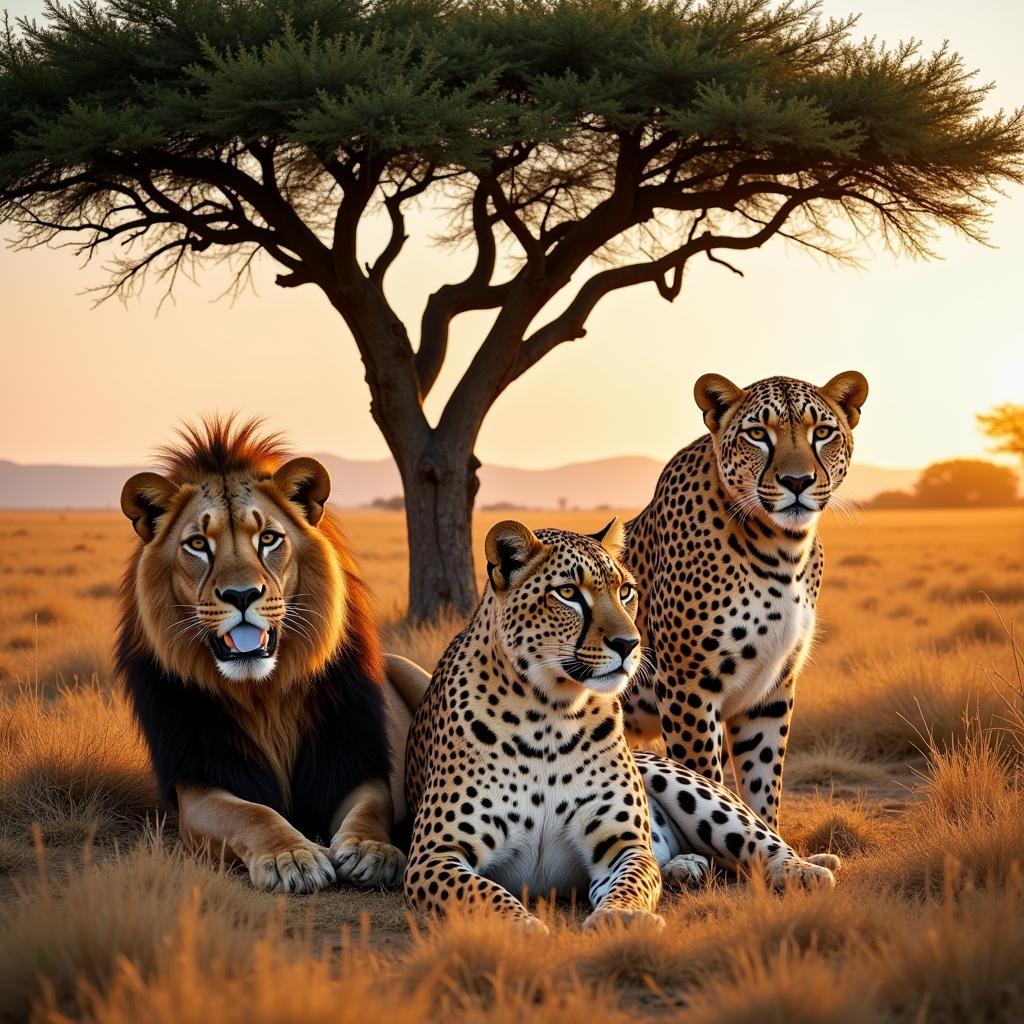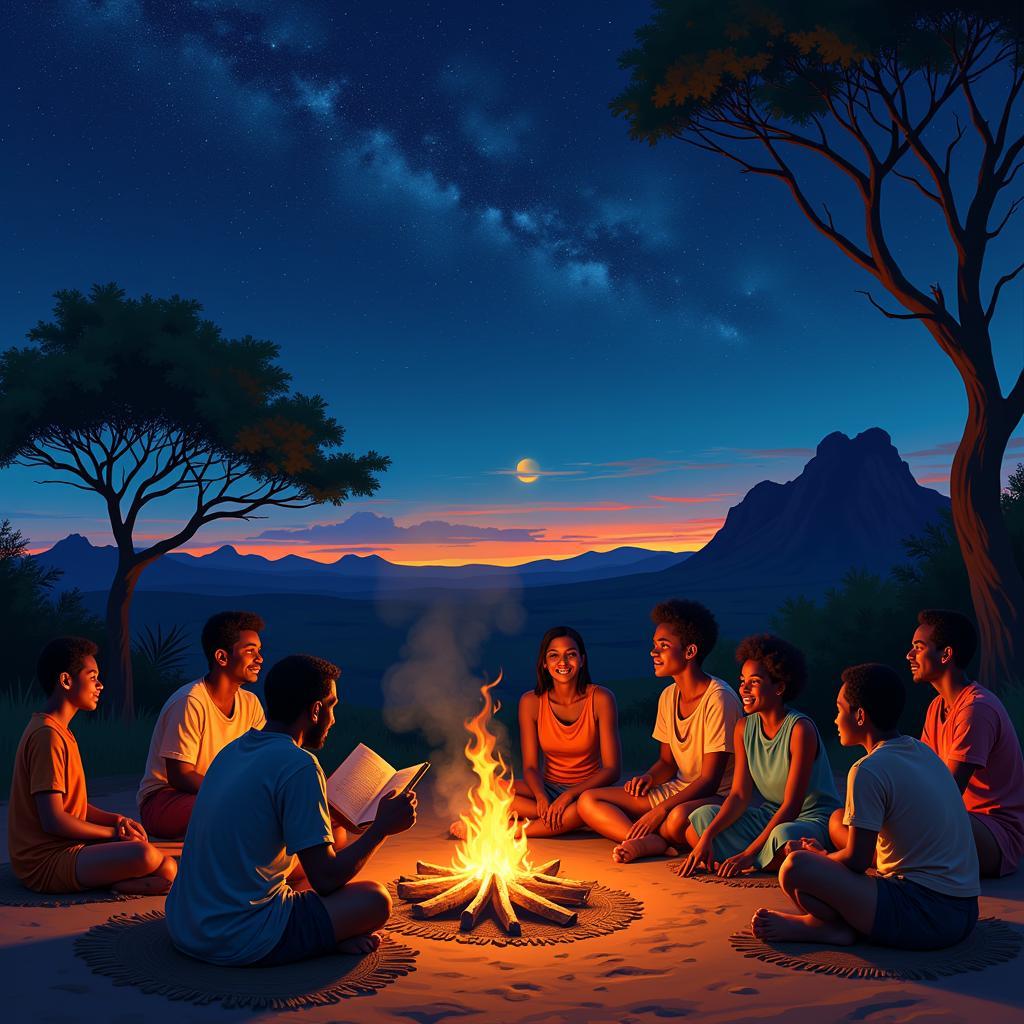Unraveling the Mystery of “African Deer Thing”: A Guide to the Continent’s Antelopes
The phrase “African Deer Thing” might sound like a whimsical riddle, but it speaks to a common misconception. While Africa is teeming with wildlife, it’s surprisingly devoid of true deer. The “deer-like” creatures that grace the savannas and forests are actually antelopes, a diverse group of animals with a fascinating story to tell.
 Herd of antelopes on the African savanna
Herd of antelopes on the African savanna
A Family Affair: Understanding Antelopes
Antelopes belong to the family Bovidae, making them relatives of cattle, sheep, and goats. Their defining characteristic is the presence of horns, which unlike deer antlers, are permanent and grow continuously throughout their lives. These horns come in an astonishing array of shapes and sizes, from the spiral horns of the Greater Kudu to the scimitar-shaped horns of the Sable Antelope.
More Than Meets the Eye: Diversity of African Antelopes
 An antelope camouflaged in the African forest
An antelope camouflaged in the African forest
The term “antelope” encompasses a wide range of species, each adapted to its particular ecological niche. From the diminutive Royal Antelope, weighing a mere 4 pounds, to the Eland, a giant that can tip the scales at over 2,000 pounds, the diversity is astounding. Some, like the Waterbuck, prefer life near water sources, while others, like the Addax, are remarkably adapted to the harsh conditions of the desert.
A Feast for the Senses: The Role of Antelopes in African Culture
Antelopes have played a pivotal role in the cultural tapestry of Africa for millennia. Their meat has provided sustenance, their hides have been fashioned into clothing and shelter, and their horns have been used for tools and ceremonial objects. In many African cultures, antelopes feature prominently in folklore, songs, and dances, embodying values of grace, agility, and resilience.
african landscape with animals
The Conservation Challenge: Protecting Africa’s Iconic Antelopes
Sadly, many antelope species face threats from habitat loss, poaching, and climate change. The majestic Black Rhino, for example, is critically endangered, with only a few thousand individuals left in the wild. Conservation efforts are underway to protect these magnificent creatures and their habitats, ensuring that future generations can continue to marvel at their beauty and ecological significance.
Frequently Asked Questions
What is the difference between an antelope and a deer?
While they may look similar, antelopes and deer are distinct animals. The key difference lies in their horns: antelopes have permanent horns that grow throughout their lives, while deer have antlers, which are shed and regrown annually.
What do antelopes eat?
Most antelopes are herbivores, feeding on grasses, leaves, and other plant matter. Some species, however, are omnivorous, supplementing their diet with insects and small animals.
How fast can antelopes run?
Antelopes are known for their speed and agility. Some species, like the Springbok, can reach speeds of up to 60 miles per hour in short bursts.
Where can I see antelopes in the wild?
Africa is home to the greatest diversity of antelopes, with many species found in national parks and game reserves across the continent.
How can I help protect African antelopes?
Supporting conservation organizations working to protect antelope habitats, raising awareness about the threats they face, and making responsible choices as consumers can all contribute to their long-term survival.
Exploring Further: A Journey Continues
The world of African antelopes is one of wonder and diversity. From the vast savannas to the dense forests, these remarkable creatures continue to captivate and inspire. By understanding their biology, ecological roles, and cultural significance, we can better appreciate the need to protect them for generations to come.
For further information or assistance in planning your African adventure, please contact us:
Phone: +255768904061
Email: kaka.mag@gmail.com
Address: Mbarali DC Mawindi, Kangaga, Tanzania
Our dedicated team is available 24/7 to assist you.


